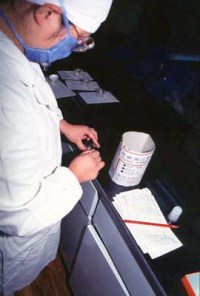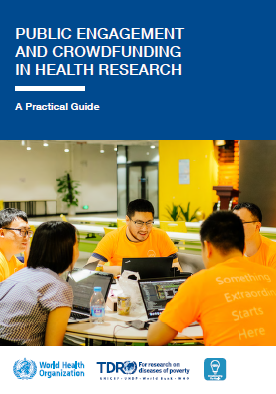Extensive drug resistance to Mycobacterium tuberculosis isolates in Pakistan
The increasing incidence of extensively drug-resistant (XDR) Mycobacterium tuberculosis in high-tuberculosis burden countries further highlights the need for Isolates showing extensive drug resistance (XDR) are an increasing problem worldwide. Photo credit: WHO improved rapid diagnostic assays. An increasing incidence of XDR M. tuberculosis strains in Pakistan has been reported, but drug resistance-associated mutations in these strains have not been evaluated previously. Researchers from the Aga Khan University in Pakistan sequenced the "hot-spot" regions of rpoB, katG, inhA, ahpC, gyrA, gyrB and rrs genes in 50 XDR M. tuberculosis strains.
Isolates showing extensive drug resistance (XDR) are an increasing problem worldwide. Photo credit: WHO improved rapid diagnostic assays. An increasing incidence of XDR M. tuberculosis strains in Pakistan has been reported, but drug resistance-associated mutations in these strains have not been evaluated previously. Researchers from the Aga Khan University in Pakistan sequenced the "hot-spot" regions of rpoB, katG, inhA, ahpC, gyrA, gyrB and rrs genes in 50 XDR M. tuberculosis strains.
It was observed that 2% of rifampin, 6% of isoniazid, 24% of fluoroquinolone and 32% of aminoglycoside/capreomycin resistance in XDR M. tuberculosis strains would be undetected if only these common hot-spot regions were tested.
The frequencies of resistance-conferring mutations were found to be comparable among all XDR M. tuberculosis strain families present, including the Central Asian strain, Beijing and East African Indian genogroups, and the unique isolates. Additional genetic loci need to be tested for detection of mutations conferring fluoroquinolone, aminoglycoside and capreomycin resistance in order to improve molecular diagnosis of regional XDR M. tuberculosis strains.
Citation: Ali A, et al. Characterization of mutations conferring extensive drug resistance to Mycobacterium tuberculosis isolates in Pakistan. Antimicrobial agents and chemotherapy. 2011, 55(12):5654. |PubMed|
This study was technically and financially supported by the WHO Regional Office for the Eastern Mediteranean Special Programme for Research and Training in Tropical Diseases Small Grants Scheme.








